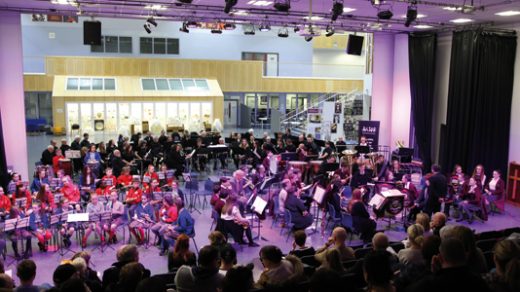Announced today: Secondary schools can partake in AI study to see if it reduces teacher workload

A new trial, announced by the Education Endowment Foundation (EEF) today, will explore whether supporting teachers to use ChatGPT – a generative artificial intelligence (AI) tool – for lesson planning can reduce their overall working hours.
Secondary schools can now sign up to take part in the trial, which is one of the first ever research projects to look at whether ChatGPT can reduce teacher workload, which research shows has a negative impact on staff retention rates in schools.
The trial will find out whether an accessible online guide, designed by Bain & Company’s Social Impact practice and charity The Hg Foundation, can help teachers make best use of ChatGPT for efficient lesson planning. The toolkit provides technical support to use generative AI to:
· Generate activity ideas
· Tailor existing lesson materials to specific groups of children
· Produce clear explanations, step-by-step examples or model examples
· Create assessment materials, such as practice questions and mock exams
As part of the evaluation, led by the National Foundation for Educational Research (NFER), 58 schools will be randomly assigned to either the ChatGPT group or control group.
Those assigned to the delivery group will use ChatGPT in their Key Stage 3 science lesson and resource preparation, supported by the online ChatGPT guide. The control group will not use ChatGPT or any other generative AI tool in any lesson and resource preparation.
In addition to online diary entries and surveys, all participants will also be asked to submit lesson plans to an independent panel of teachers, who will use them to compare and assess the quality of AI-generated lesson resources.
In the past year, there has been a huge increase in the demand for and use of generative AI in schools. But there is currently very little research into its impact in the classroom, and how teachers can use it to support improvements to their practice.
This will be one of the EEF’s first ‘Teacher Choices’ trials, a new type of evaluation, which aim to help people learn more about the impact of non-programmatical approaches that teachers use in their classrooms.
Secondary schools can sign up to take part in this trial through the EEF website. Those that participate will receive a thank you payment for contributing to the research.
Professor Becky Francis CBE, chief executive of the Education Endowment Foundation (EEF), said: “Finding ways to make life easier for hardworking, time-poor teachers has never been more important.
“This is an extraordinarily exciting project – one of the first of its kind to look at how generative AI could be used to lighten their significant workload.
“There’s already huge anticipation around how this technology could transform teachers’ roles, but the research into its actual impact on practice is – currently – limited.
“The findings from this trial will be an important contribution to the evidence base, bringing us closer to understanding how teachers can use AI to their advantage in their classrooms.”
James Turner, chief executive of the Hg Foundation, said: “We know there are teacher shortages, especially in STEM subjects, and significant challenges around teacher workload, retention and recruitment, particularly in the most disadvantaged schools.
“Generative AI could be a game-changer for social mobility and equity, which is why we were so keen to develop the free ChatGPT toolkit.
“But to realise generative AI’s potential, and to avoid the pitfalls, we need high quality evidence on its impact so teachers can make the most effective decisions.”









